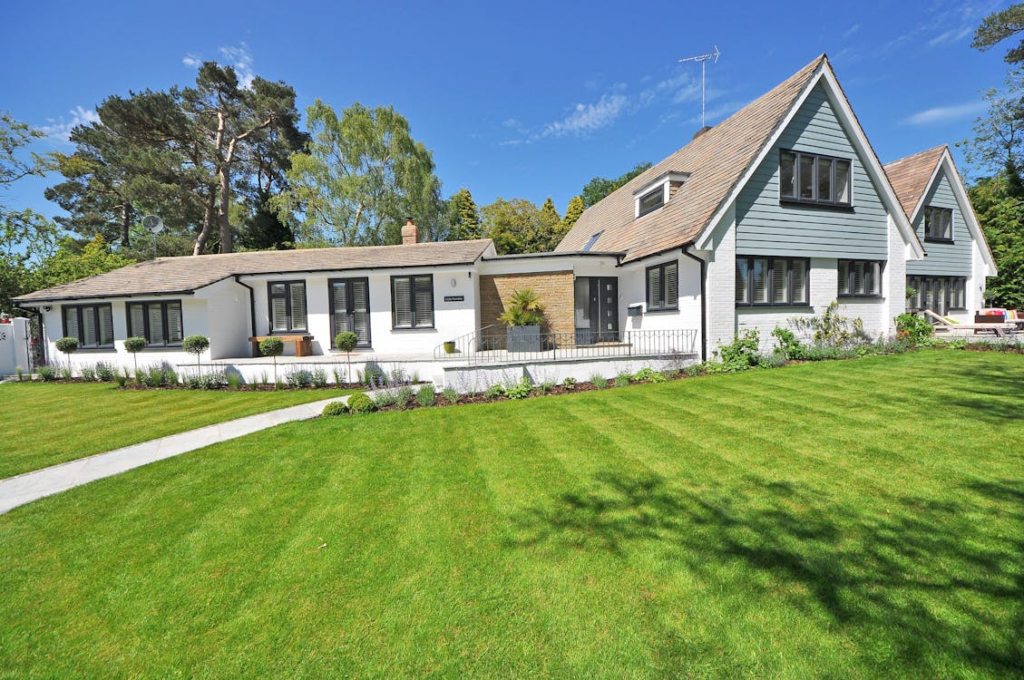When purchasing a home or investment property, people tend to concentrate on the sale price and the mortgage rate. But property taxes and HOA fees can make a big difference when it comes to the monthly and annual costs of homeownership — often, more of one than you might anticipate. People need to know what these ongoing costs are to set long-term budgets, especially in places like Delaware.
Delaware has unique tax benefits in the U.S. It has no sales tax at the state level, and some of the nation’s lowest property tax rates. That makes it a solid choice for retirees, real estate investment or anyone looking for lower ownership costs. But while property taxes are relatively modest, Homeowners Association (HOA) fees can vary greatly based on the community, amenities, and location.
Whether you’re purchasing your investing in real estate first time or expanding your rental portfolio, knowing how Delaware taxes and association fees function is essential. Here’s what you need to know before putting pen to paper.
Delaware Property Taxes: Key Facts
If you’re considering buying a house in Delaware, it’s important to understand property taxes and HOA fees. While it is true that Delaware taxes are low generally, the way property taxes are levied and collected can come as a surprise if you’re new to the state.

How Property Taxes Work in Delaware?
Property taxes in Delaware are calculated based on the assessed value, not on the current market value. That means your tax bill may not reflect your home’s actual market worth. What’s more, many of these counties have not completed a full reassessment in decades. As an example, New Castle County has not reassessed properties since the 1980s, meaning the value placed on those properties could be outdated. This may lead to disparities in applying them in similar homes of the same region.
Tax Rates by County
Delaware has three counties: New Castle, Kent and Sussex. Each sets its own tax rates. On average, Sussex County has the lowest rates, Kent County has the next lowest and New Castle County has the highest. Additionally, many municipalities—like Wilmington—impose their own property taxes on top of county rates, increasing your total bill. Always check both county and city rates when calculating potential costs.
Property Tax Due Dates & Billing Cycles
Property taxes are issued annually for most counties in Delaware, commonly in the month of July or August, with payment due September 30th. Interest penalties and possible liens are imposed for late payments. Missing a deadline can have legal and financial implications, so tracking billing cycles is important.

Whether you are intending to live in the area long term or purchase a home as rental property, understanding property taxes and HOA fees will help you budget and prevent any surprises.
Understanding Property Tax Assessment in Delaware
If you’re like most Delaware homeowners, you’re probably curious or confused about how your property taxes are calculated.
Delaware property tax bills are determined based on the assessed value of the home, and not what it would sell for today. It is one of the oldest assessment systems in the country, with some properties in a few counties still being valued on the basis of 1980-era assessment scales. For instance, New Castle County hasn’t performed a general reassessment since 1983. That’s why two neighboring similar houses could have very different tax bills, depending on when they were last assessed.
Recent court rulings have mandated that counties must begin reassessment processes to create a more equitable system. So, if you’re budgeting for property taxes and HOA fees, consider that your tax rate can go up as reassessments go into effect.
Can You Appeal Your Property Assessment?
So, yes, Delaware homeowners can challenge the assessments of their property if they think their home is overvalued. Every county has its own appeals process and deadlines which usually take place just after annual assessment notices go out in the mail. You will be required to submit all supporting documents, like appraisals, recent sales comparisons or proof of physical defects, to justify your claim.

The filing of an appeal makes the most sense if your assessed valuation is quite out of sync with homes that are similar to yours in your same general locale. But it’s a smart move that can save you hundreds or thousands, over time on property taxes and HOA fees.
Average Property Tax Rates in Delaware Compared to Other States
When evaluating property taxes and HOA fees, Delaware stands out for its exceptionally low property tax burden. For homeowners and investors, this translates into long-term savings—especially when compared to neighboring states.
Delaware’s National Ranking
Delaware consistently ranks among the top five states with the lowest property tax rates. The average effective property tax rate here ranges from 0.5% to 0.6%, significantly below the national average of around 1.1%. By comparison, New Jersey tops the list with rates exceeding 2.0%, while Pennsylvania averages around 1.5%. Maryland typically falls near the national average, making Delaware a much more tax-friendly option in the region.
This tax advantage makes a noticeable difference for buyers looking to relocate from neighboring states or retirees seeking cost-effective living.
Tax Example by Home Price
Let’s say you purchase a $300,000 home in Delaware. Based on an average 0.55% property tax rate, your annual tax bill would be approximately $1,650. In New Castle County, the rate might push this closer to $1,800, while in Sussex County, it could be as low as $1,300. By comparison, a similar home in New Jersey could come with an annual tax bill of over $6,000.
Factoring in these differences—along with HOA fees—gives you a clearer picture of the true cost of homeownership in Delaware.
What Are HOA Fees and Why Do They Exist?
If you are buying a home in a neighborhood with a homeowners association (HOA), you should budget for this type of fee along with property taxes and all HOA-related fees. These monthly or quarterly fees perform vital services for the community, such as maintaining common areas in a well-kept, clean condition; making them safe; and operate them.
Purpose of HOA Fees
HOA dues are supposed to ensure the aesthetics, ambience and functionality of the neighborhood / condo complex. They pay for maintenance of common areas, landscape maintenance and common services. They also enforce community rules in many of these neighborhoods– making sure spots are well-kept and adhere to certain standards. This helps maintain the value of homes and the tenor of the neighborhood.
What HOA Fees Typically Include?
Standard HOA fees in Delaware are likely to pay for services such as lawn care, snow removal, exterior maintenance and trash collection. In richer-amenity communities, they might also pay for security, clubhouse maintenance, pools or fitness centers. Remember that shared utilities (such as water or hallway lights) are often included, too. Be sure to review the HOA’s budget or fee break out prior to purchasing.
Average HOA Fees in Delaware
While both property taxes and HOA fees are ongoing homeowner costs, HOA fees can vary significantly — even within the same city.
How Much Should You Expect to Pay?
In Delaware, monthly homeowner association (HOA) dues range from $30 to more than $400. Condos, and especially townhouses, in cities such as Wilmington or Newark may be toward the higher end because they tend to offer more services. Gated communities and 55+ active adult neighborhoods often charge more to maintain exclusive amenities. On the other hand, single-family home communities with limited common areas may keep fees under $100/month.

Factors That Influence HOA Cost
So how much you will pay for your coverage depends on a number of factors:
- Amenities: Pools, fitness centers, walking trails and clubhouses add to the costs.
- Number of Units: More homes in the HOA the lower the per-unit cost.
- Age of Infrastructure: Older communities typically need more maintenance which can be passed along in fees.
Knowing what these variables are will enable you to correctly estimate your actual costs of home ownership and also allow a meaningful comparison of neighborhoods.
How to Reduce or Manage These Costs?
Whether you’re a first-time buyer or a long-time homeowner, managing property taxes and HOA fees can help you protect your budget and increase your property’s long-term value. With the right strategies, you can minimize these recurring costs without compromising your lifestyle.
Lowering Your Property Taxes
If you think that your home has been over-assessed, you have the right to file a property tax appeal. And it can be especially valuable in Delaware, where out-of-date assessments might not capture your home’s true market value. To begin, ask for a copy of your property record and compile recent sales data on comparable homes. Deadlines and forms vary by each county, so act fast when annual assessments are issued.
Also, investigate whether you are eligible to have property taxes exempted. Delaware provides some relief for seniors, disabled individuals, veterans and certain low-income households through state or locally funded programs. You can apply for these, which will reduce your bill substantially.
Managing HOA Fees
When you participate, HOA expenses are more likely to be manageable. Go to HOA meetings, stay informed about spending, budgets, and future projects. Take a look at the association’s financials — particularly the reserve fund — to see how well the community saves for long-term repairs.
If you see room for improvement, offer ideas for ways to save money — whether that’s switching vendors or “going green” (saving money on your energy bill by using compact fluorescent or LED light bulbs), or by suggesting a different resource-saving maintenance schedule. You also want to know about special assessments, which are one-time fees to cover unanticipated costs such as replacing a roof or resurfacing a road.
By being proactive, you’ll be better able to manage your property taxes and HOA fees, and eliminate any financial surprise.
Frequently Asked Questions
- Are property taxes high in Delaware?
No, Delaware has some of the lowest property taxes in the U.S.—typically around 0.5% to 0.6%. - Can HOA fees increase over time?
Yes, fees may rise due to inflation, added amenities, or unforeseen repairs. - Are HOA fees mandatory in Delaware?
If your home is in an HOA-governed community, payment is legally required. - What happens if I don’t pay my property taxes?
Late payments can lead to penalties, interest, or even a tax lien on your property. - How do I appeal my property tax assessment?
Contact your county’s assessment office, gather documentation, and file by their set de







